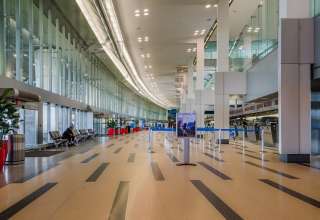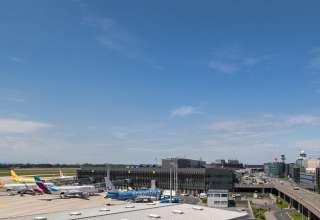Bristol Airport’s efforts to reduce its carbon footprint have been recognised with accreditation at the second of four levels in a global industry programme.
Airport Carbon Accreditation is an independent, voluntary programme which certifies airports at four different levels of accreditation covering all stages of carbon management – mapping, reduction, optimisation and neutrality. It is independently administered for ACI Europe, the organisation representing European airports, and has won praise from the United Nations Framework Convention on Climate Change (UNFCCC), the International Civil Aviation Organisation (ICAO), and the European Commission.
Bristol Airport became the 23rd airport in Europe to achieve accreditation at the mapping level in 2015. This entailed measuring energy use over a nine-year period and committing to a Carbon Management Plan to reduce carbon emissions across its 196 hectare site. This has seen solar photovoltaic panels installed on the terminal, air source heat pumps used to heat the building, and LED lighting fitted throughout, as well as ongoing engagement with colleagues to encourage energy saving.
Level two accreditation recognises the results delivered by these and other initiatives, which saw carbon emissions per passenger reduce by 28 per cent between 2014 and 2017. Absolute emissions have fallen by more than six per cent despite major developments including two terminal extensions, the most recent of which added 9,000 square metres to the building.
James Shearman, Head of Sustainability at Bristol Airport, said:
“Achieving level two accreditation demonstrates our continued commitment to reducing Bristol Airport’s carbon footprint. It is an important step on the journey towards carbon neutrality, which is our ultimate long-term goal.”
The next level in the four-stage process is optimisation, which requires airports to widen the scope of its carbon footprint to include third-party emissions, such as those generated in the landing and take-off cycle of aircraft. The final stage in the accreditation process is carbon neutrality, which Bristol Airport aims to achieve by 2030.
A consultation on Bristol Airport’s Master Plan runs until 6 July, considering how the Airport can meet future demand for air travel to and from the South West and South Wales. As part of this process, the Airport has set out a Charter for Future Growth which includes commitments to publish a Sustainable Growth Strategy with detailed objectives, targets and an action plan.











